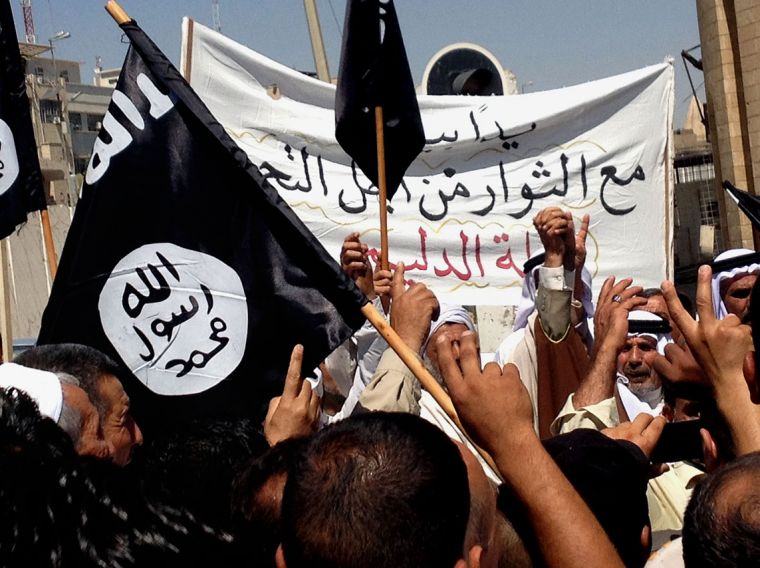ISIS and Al-Qaeda: how do they differ?

The Islamic State of Iraq and the Levant (ISIS) has appeared on our headlines as if out of nowhere as a result of its rapid takeover of parts of Syria and Iraq. But the group has been incubating and gathering strength for just over a year now, since its formation out of al-Qaeda in Iraq in April 2013.
There is no exact figure on members but they are believed to number in the thousands and a senior Kurdish intelligence officer, Lahoor Talabani, has just warned that hundreds of British nationals have joined the ranks of ISIS and are being prepped to launch attacks on the UK. He puts the number of British nationals in ISIS at around 400 to 450.
ISIS was only formed in April 2013 but international relations experts say it is fast replacing al-Qaeda as the world's most dangerous militant group.
Its core is made up of former al-Qaeda in Iraq militants but al-Qaeda Central wants nothing to do with them and they formally parted ways in February this year.
Barak Mendelsohn, writing in Foreign Affairs magazine, says the rift was in part down to ISIS's "disrespect and even outright subversion of al-Qaeda's authority".
When ISIS's Iraq leader, Abu Bakr al-Bahdadi, attempted to commandeer al-Qaeda's Syrian affiliate, Jabhat al-Nusra, and proclaim a united front between the two under the same name of ISIS, al-Qaeda Central begged to differ and insisted the two remain separate factions. Baghdadi responded by publically disobeying al-Qaeda Central.
Levels of brutality by ISIS militants have also been a source of contention, with the BBC reporting that hostility to the group grew steadily in Syria as it "regularly attacked fellow rebels and abused civilian supporters of the Syrian opposition".
In simple terms, ISIS and Al-Qaeda Central have a similar end goal but significantly different perspectives about how to get there.
Elizabeth Kendal explains in her Religious Liberty blog that while Al-Qaeda's 'old guard' are prepared to co-operate with Iran and Shi'ites in pursuit of higher goals, the "young-guns" of ISIS are not.
Instead, ISIS is sticking to an uncompromisingly Saudi Wahhabi/Salafi and anti-Shia creed.
"Al-Qaeda's more seasoned leaders have learned that fighters must treat local Muslims gently and win their hearts and minds if they are to avoid generating local resistance," she says.
"On the other hand, ISIS regards that as compromising and soft. Rather, ISIS is enforcing strict Sharia codes and enacting cruel Sharia punishments, including public lashings, amputations and executions, even crucifixions.
"It is not that al-Qaeda is 'more moderate' than ISIS, it is just more rational. Al-Qaeda still wants to annihilate Israel, establish a Caliphate and take jihad to the West. Al-Qaeda is well aware that division and intra-Muslim conflict will weaken the global jihad movement."
Hani Nesira, of the Al Arabiya Institute for Studies, writes that ISIS has made a success of creeping into the structures of unsuccessful regimes and exploiting them while they are experiencing turmoil, all at a time when al-Qaeda's central leadership has weakened and is "incapable of supporting its affiliates".
While al-Qaeda "focuses on the distant enemy rather than the enemy that is near", ISIS is constantly expanding in chaotic contexts on the national, regional and international levels.
He says notable differences between the two groups are ISIS's "apparent lack of moral principles" – "ISIS has no ethics and it seems to rely on the ideological beliefs of extreme Salafist Jihadism," he writes - and its "operational focus on expanding on the geographical level to establish an interconnected state described as the 'ISIS crescent'" that would include Mosul, Raqqa in Syria, and Diyarbakir in Turkey.
Kendal says that Christians in the areas where ISIS is taking control are in grave danger as the militants impose strict Sharia rules.
Most have now fled Mosul where Kendal reports ISIS has implemented a 'Contract of the City' laying down the rules and the penalties that will be suffered by those who do not adhere to them. For police, soldiers and government workers that could be crucifixion or exile.
Women, meanwhile, must not leave the house unless absolutely necessary, in which case they must wear the niqab that covers everything but their eyes.
"Such conditions make it unlikely that the displaced Christians will ever return to their homes. Upper Mesopotamia's Christians are caught in 'the eye of the storm'," she said.
Kendal is asking that Christians pray:
- 'frustrate the way of the wicked' (Psalm 146). May the Lord's enemies continue to divide and weaken. 'Let the wicked fall into their own nets, while [God's people] pass by safely.' (Psalm 141:10 ESV)
- aid, protect and provide for the thousands of displaced Christian families, along with those who give them shelter.
- graciously open the eyes and hearts of all those Muslim families who are sheltering with Christian families in Christian churches, monasteries and schools across Nineveh; may Muslims, who essentially view God as a 'strongman' in the sky too transcendent to love or relate to humanity, be transformed by what they witness and experience of Christians finding and sharing grace through faith, assured of God's ear and his heart. May no Muslim be left unchanged.
Jesus said, 'For judgment I came into this world, that those who do not see may see, and those who see may become blind.'(John 9:39 ESV)
- awaken the suffering-averse Church in the West, to see and respond to the suffering Church, before the Western Church's light is taken away.











